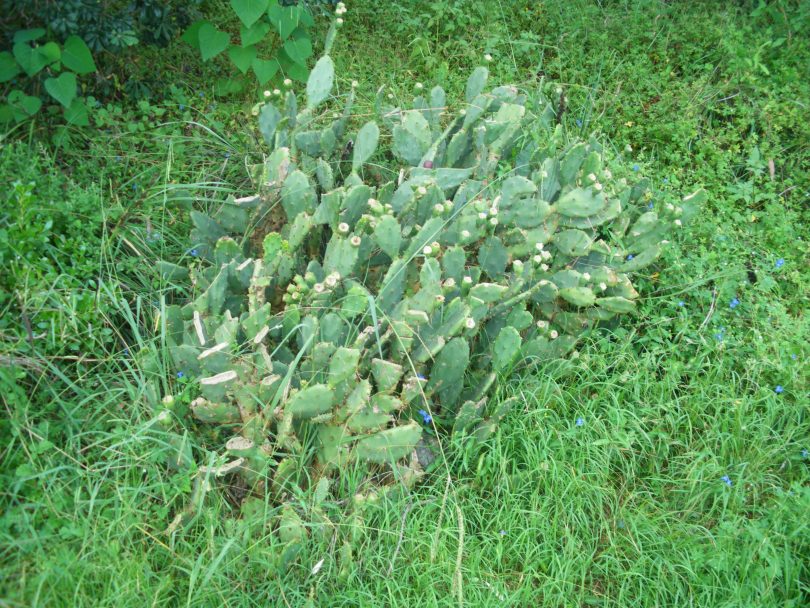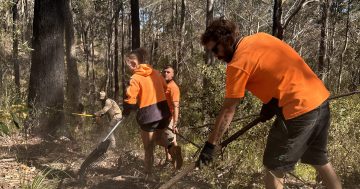
The prohibited and invasive prickly pear cactus can cause massive destruction to the natural environment in Australia. Photo: Eurobodalla Shire Council.
While some species of prickly pear may seem like they would make an attractive pot plant, once in the natural environment the cactus can create impenetrable spikey walls and cost millions to control.
A statewide campaign is urging people to be on the lookout for the sale or trade of the prohibited plant, which has bristles and spines that can cause serious injury to people, and impale, infect, blind and even kill native animals, pets and livestock.
Prickly pears were introduced to Australia via Brazil with the First Fleet, with the aim of establishing a cochineal dye industry, according to the NSW Government.
By 1920, one of the species – common pear (opuntia stricta) – had infested 23,000,000 hectares in NSW and Queensland. Half of the infested area was so densely covered it was useless for production and was abandoned by its owners.
Prickly pears are now found across NSW.
Easy to propagate from cuttings, cacti are popular plants in indoor and outdoor household gardens. Their rapid growth can cause widespread devastation in the natural environment.
“Prickly pear is a declared plant under NSW biodiversity legislation for a reason,” said Eurobodalla Shire Council’s invasive species supervisor, Paul Martin.
“If it’s dumped in backyards or reserves it spreads easily. It has nasty spines that can injure people, wildlife and pets and it’s extremely difficult to kill.
“Spring usually brings an increase in plant sales so we’re appealing to the public to be on the lookout for these cacti in markets and online.”
Mr Martin said the Eurobodalla Shire is lucky to have escaped a serious prickly pear infestation in recent years.
Eve’s needle, bunny ears, smooth tree pear and blind cactus are all types of prickly pear illegally traded in NSW despite on-the-spot fines of $1000 and penalties of up to $220,000.
To help stop the spread of the cacti, don’t buy, sell, swap or give it away.
Also, never dump unwanted plants – ask your local council’s weeds officer how to dispose of them.
Crime Stoppers has compiled a fact sheet for more information. You can anonymously report the sale of prickly pear to Crime Stoppers on 1800 333 000 or online.









